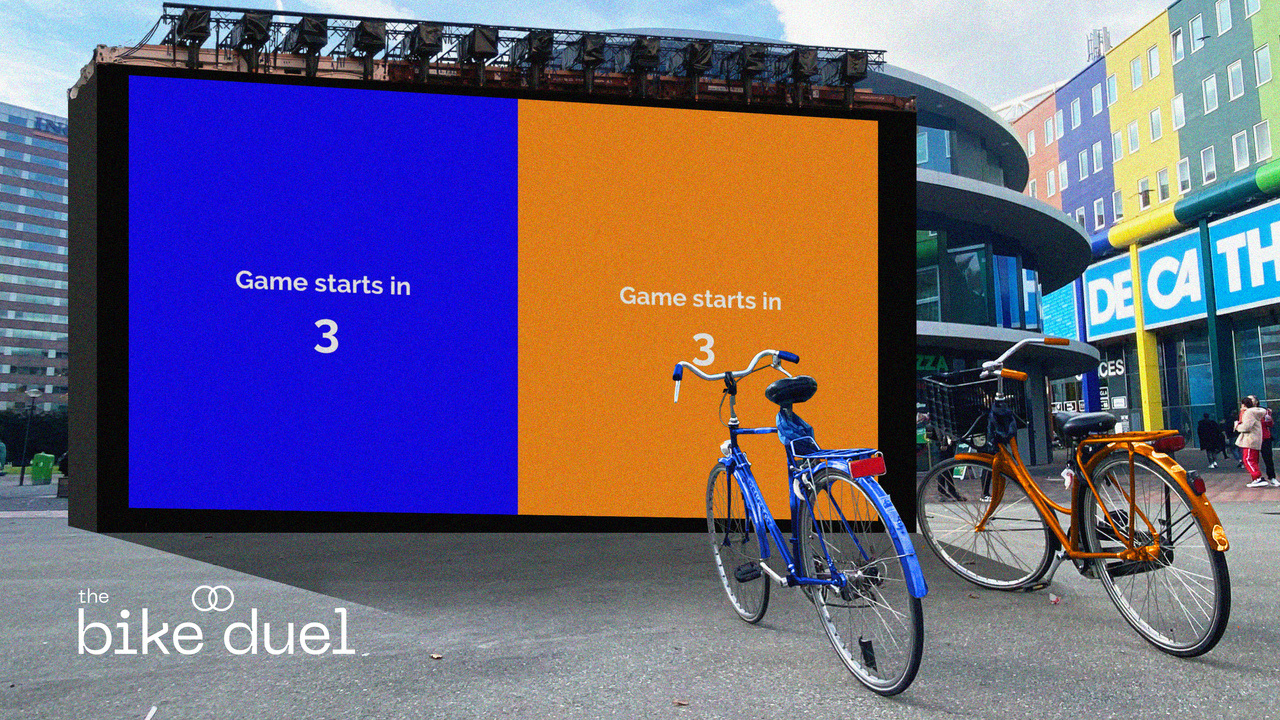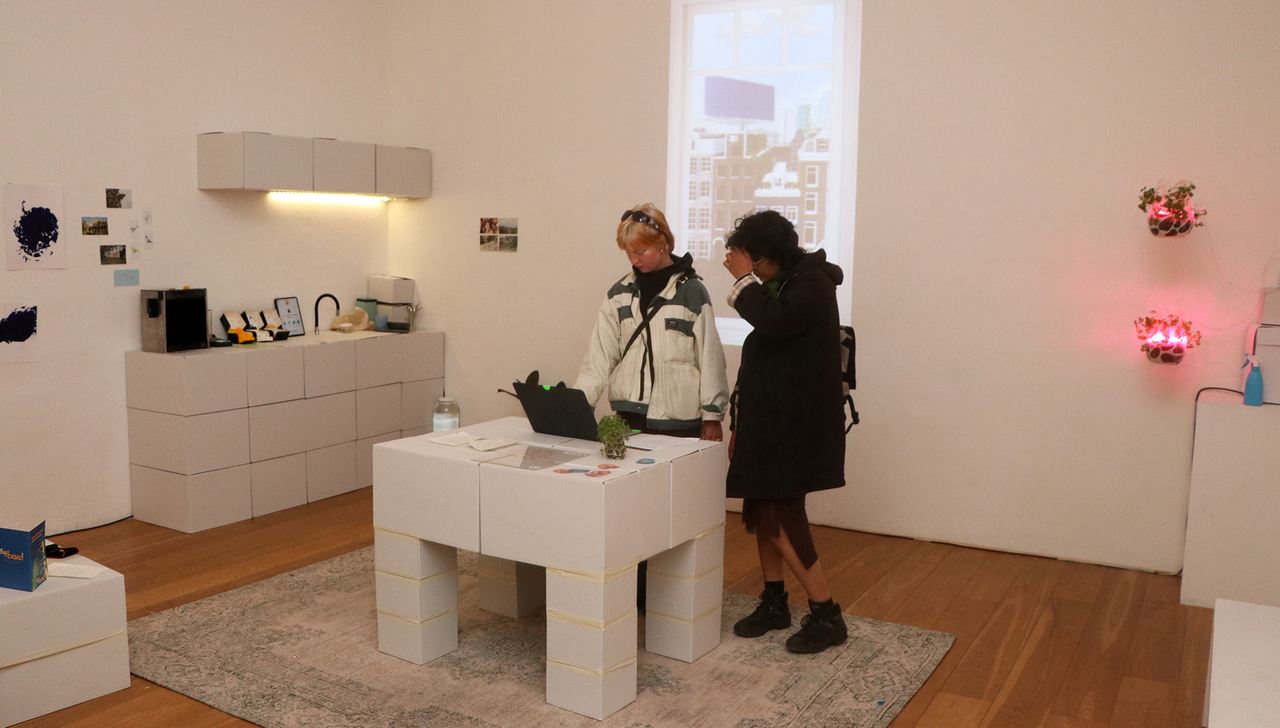
The Bike Duel
Sustainable travel to events
-
Client:
Creative Media For Social Change
- Team:
-
Disciplines:
Concept, Game Design, Experience Design
-
Schoolyear:
2021 - 2022
The ArenAPoort arenas in Amsterdam welcome up to 80,000 visitors during days with large events, many of whom are travelling by car. The environmental impact of the travels is a major concern which is why the research group Creative Media for Social Change asked us to explore new ways of influencing people in travelling environmentally friendly.
Massive car travel to ArenAPoort has an enormous impact on the environment, creating air and noise pollution and widespread congestion. The event industry has already been hit hard by Covid, and many organisers believe that the environmental effects of travelling to an event might be another hindering factor for visitors.
But what will make people refrain from taking the car when going to a concert or another event?

There are already many actions that concertgoers might take to minimise their environmental impact (e.g. carpooling, travelling by public transport) and various communication campaigns / digital tools have tried to approach this issue from a rational perspective. Our challenge was to encourage more sustainable travel with a concept that is experience and emotional driven.
The research group Creative Media for Social Change approached this issue in cooperation with AFAS Live, the Johan Cruyff Arena, and the other venues in that area.

Deep diving into green travel
In our research, we focused on looking at relevant case studies, what types of media provoke emotion and behavioural change, and people’s behaviour and attitude in relation to sustainable travel. This led us to the conclusion that the concept should be engaging, interactive, and spread sustainable travel as the norm. We continued working on a concept that would give people travelling sustainably exclusive access to a green bar. The bar would host a physical bike game that the rest of the visitors could watch on a large screen. However, when visiting the arena we could not find a suitable place for the green bar, and had to rethink the concept.
The outside area also offered a lot of good visibility and reach possibilities. By hosting an experience outside, in the middle of the ArenaPoort square, we could catch the attention of fans going to all different venues.

The concept in a nutshell
The concept is a first-person game, shown on a large screen, between two bikers, going from Amsterdam Centraal to Johan Cruyff Arena. To make it an interactive experience, the crowd is invited to participate and to help one of the bikers, through a game they can play on their phone. At the end of the game, there will be easily digestible messaging about sustainable travel to raise awareness. These messages are shown on the large screens as well as on the phones of participants.

How does it work?
To prototype the bike game, we used a light sensor connected to Arduino, registering each turn the wheel takes. This affects the speed of the video on the big screen: the spins accelerate the playback and the biker will reach the goal faster. The first biker to reach Johan Cruyff arena on screen is the winner. Our goal is to create a spectacle that catches the attention of bypassers and makes them associate the fun experience with our messaging about sustainable travel.

The mobile game
The mobile game can be accessed by scanning a QR-code displayed both outside and inside the venues (where people are also able to watch the bike duel happening outside). After scanning a QR-code, the player chooses which biker to support, and when the race starts they will answer quiz questions about sustainable travel, questions related to the current event, or random facts. The player's success will have a direct effect (although minor) on their chosen bikers’ speed in the game. The more right answers supporters get, the faster the biker can pedal.
Having screens spread throughout the area and venues from which visitors can watch and support the experience is a way to help to reduce crowding (when people go to, or from, the arena at the same time) and to engage a larger number of event-goers.
Messaging
An essential part of the concept was also to create messaging that would raise awareness about the issue. While a majority of people will claim to prioritise environmental decisions, this effect is lower than “the bandwagon effect” (that people tend to act as they believe others are acting). We used this insight by framing sustainable travel as the norm.

With this concept, we hope to encourage event organisers to explore new ways to promote sustainable behaviour, hopefully by designing experiences that also give something to the visitor.


